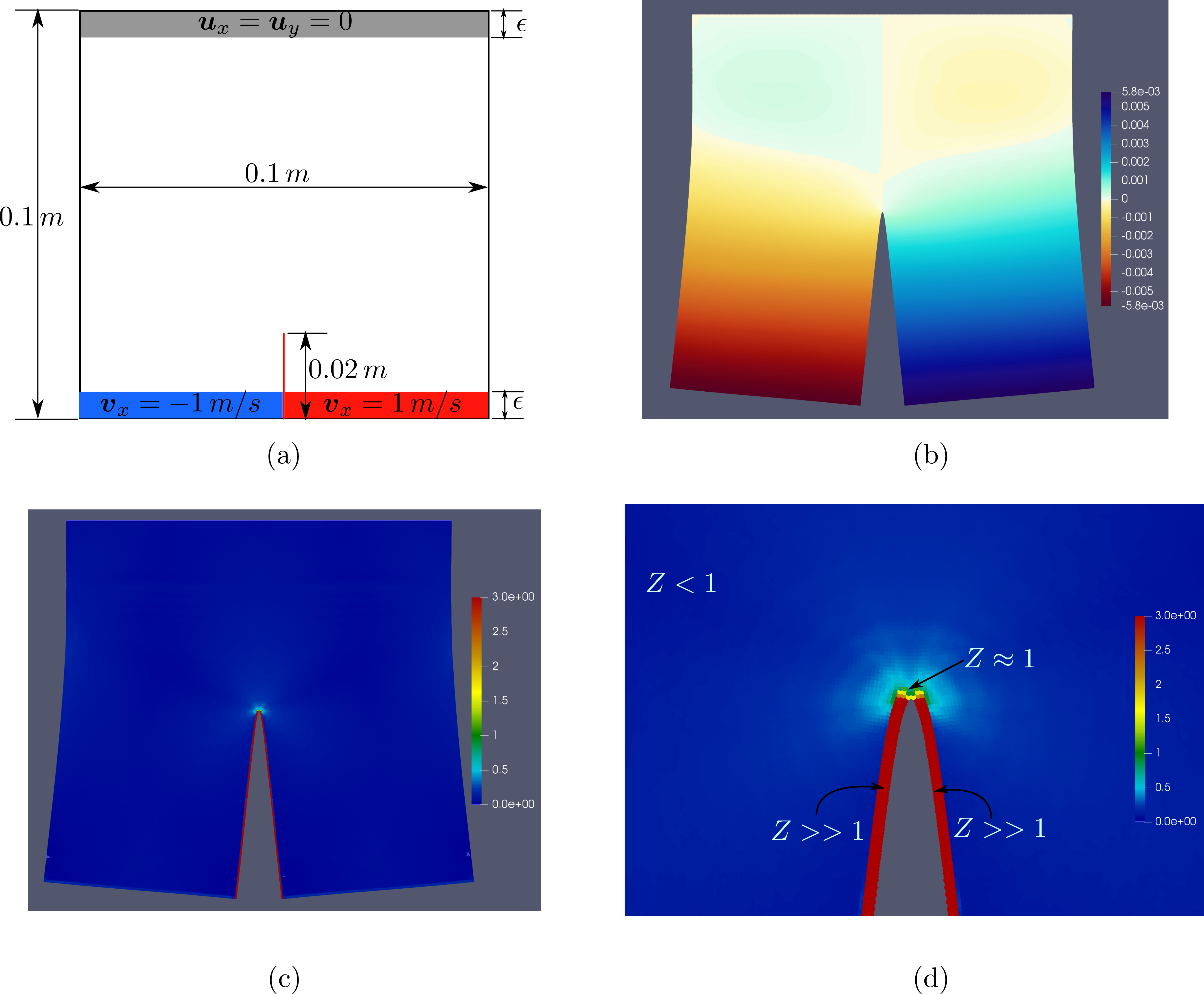Crack propagation in Glass material
This example shows the setup and configuration of the example shown in the following paper:
- Lipton, R.P., Lehoucq, R.B. & Jha, P.K. Complex Fracture Nucleation and Evolution with Nonlocal Elastodynamics. J Peridyn Nonlocal Model 1, 122–130 (2019). https://doi.org/10.1007/s42102-019-00010-0
Following steps explain the example and the YAML donfiguration file is available here.
-
We consider a Peridynamic simulation of Glass material using RNP Peridynamic model (Regularized Nonlinear Peridynamic) developed and studied in Lipton 2016 and Jha and Lipton 2018. RNP model is implemented in class RNPBond.
-
Units are SI units, e.g. length is in
meter, mass is inkg, force is inN, and time is insecond. -
Elastic properties of material are as follows:
- Bulk modulus
K = 25.0E+09 Pa - Poisson ratio
$\nu$ = 0.25 - Density
$\rho$ = 1200 kg/$m^3$
- Bulk modulus
-
Fracture properties of material are as follows:
- Critical energy release rate
$G_c$ = 500 J/$m^2$
- Critical energy release rate
-
For above elastic properties and fracture properties, we can compute the parameters in Peridynamic material model. This has been described in detail in RNPBond::computeParameters.
-
Material domain is rectangle with length
$L_x$ = 0.1 min x-direction and length$L_y$ = 0.1 min y-direction. We useplane-stressassumption and take thickness of material to be just1 m. -
Horizon is
$\epsilon$ = $L_y$/50and mesh size ish = $\epsilon$/4. -
Time domain
- Final time
T = 0.00014 - Time steps
N = 35000 - Output frequency of simulation data:
N/70
- Final time
-
Boundary condition
-
We fix top layer of thickness, i.e. we apply displacement boundary condition
$u_x$ = 0and$u_y$ = 0. -
We apply constant velocity (i.e. linear in time displacement) on layers at the bottom edge of domain. The thickness of layer is same as horizon
$\epsilon$. -
Value of constant velocity along x-direction is
v = 1.0 m/s. -
Displacement boundary condition is implemented in ULoading
-
See figure for setup details.
-
-
Pre-crack: We consider vertical pre-crack of length
l = 0.02 mstarting from center of bottom edge, see figure above.- Pre-crack and fracture related methods can be found in Fracture.
-
We specify
Displacement,Velocity,ForceandDamage_Zas output candidates.
The complete YAML configuration file is available here.
Mesh
We consider uniform mesh of mesh size h = $\epsilon$/4.
- To generate uniform mesh, run Mesh with input file
input_mesh.yaml. It will producemesh.vtuwhich is needed to run the simulation, seeinput.yamlfile where mesh input details are provided.
The complete YAML configuration file is available here.
Results
We show setup, displacement, and damage plot at time t = 0.000058 seconds. Results are from paper Lipton et al 2019.
